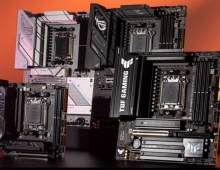
New York Attorney General Terminates Antitrust Lawsuit Against Intel
Intel and the New York Attorney General have agreed to
terminate the lawsuit alleging violation of U.S. and
state antitrust laws that was filed by the New York
Attorney General in November 2009.
In 2008, New York state Attorney General had issued a
broad subpoena investigating whether Intel violated
state and federal antitrust laws by coercing customers
to exclude its main rival, AMD, from the worldwide
market for x86 computer processing units (CPU). The subpoena seeked Intel's pricing practices and
possible attempt to exclude competitors through its
market domination.
The settlement ends a November 2009 Delaware case brought by New York's attorney, who had accused Intel of violating state and federal antitrust law through a "systematic worldwide campaign" to bully customers into buying its personal computer chips, at the expense of rival AMD.
Today's agreement follows a December 2011 court ruling that reduced the scope of the New York Attorney General's lawsuit.
According to Intel, the agreement "expressly states that Intel does not admit either any violation of law or that the allegations in the complaint are true, and it calls for no changes to the way Intel does business."
The agreement includes a payment of $6.5 million from Intel that is intended to cover some of the costs incurred by the New York Attorney General in the litigation.
"Following recent court rulings in Intel's favor that significantly and appropriately narrowed the scope of this case, we were able to reach an agreement with New York to bring to an end what remained of the case. We have always said that Intel's business practices are lawful, pro-competitive and beneficial to consumers, and we are pleased this matter has been resolved," said Doug Melamed, senior vice president and general counsel at Intel.
Intel has faced allegations of anticompetitive conduct, and is still appealing a 1.06 billion euro fine imposed in 2009 by European regulators.
In 2010, the Federal Trade Commission settled a case in which it accused Intel of unlawfully stifling competition in microprocessors.
In November 2009, Intel had also agreed to pay AMD $1.25 billion to settle all outstanding legal disputes with its smaller rival.
The settlement ends a November 2009 Delaware case brought by New York's attorney, who had accused Intel of violating state and federal antitrust law through a "systematic worldwide campaign" to bully customers into buying its personal computer chips, at the expense of rival AMD.
Today's agreement follows a December 2011 court ruling that reduced the scope of the New York Attorney General's lawsuit.
According to Intel, the agreement "expressly states that Intel does not admit either any violation of law or that the allegations in the complaint are true, and it calls for no changes to the way Intel does business."
The agreement includes a payment of $6.5 million from Intel that is intended to cover some of the costs incurred by the New York Attorney General in the litigation.
"Following recent court rulings in Intel's favor that significantly and appropriately narrowed the scope of this case, we were able to reach an agreement with New York to bring to an end what remained of the case. We have always said that Intel's business practices are lawful, pro-competitive and beneficial to consumers, and we are pleased this matter has been resolved," said Doug Melamed, senior vice president and general counsel at Intel.
Intel has faced allegations of anticompetitive conduct, and is still appealing a 1.06 billion euro fine imposed in 2009 by European regulators.
In 2010, the Federal Trade Commission settled a case in which it accused Intel of unlawfully stifling competition in microprocessors.
In November 2009, Intel had also agreed to pay AMD $1.25 billion to settle all outstanding legal disputes with its smaller rival.





















